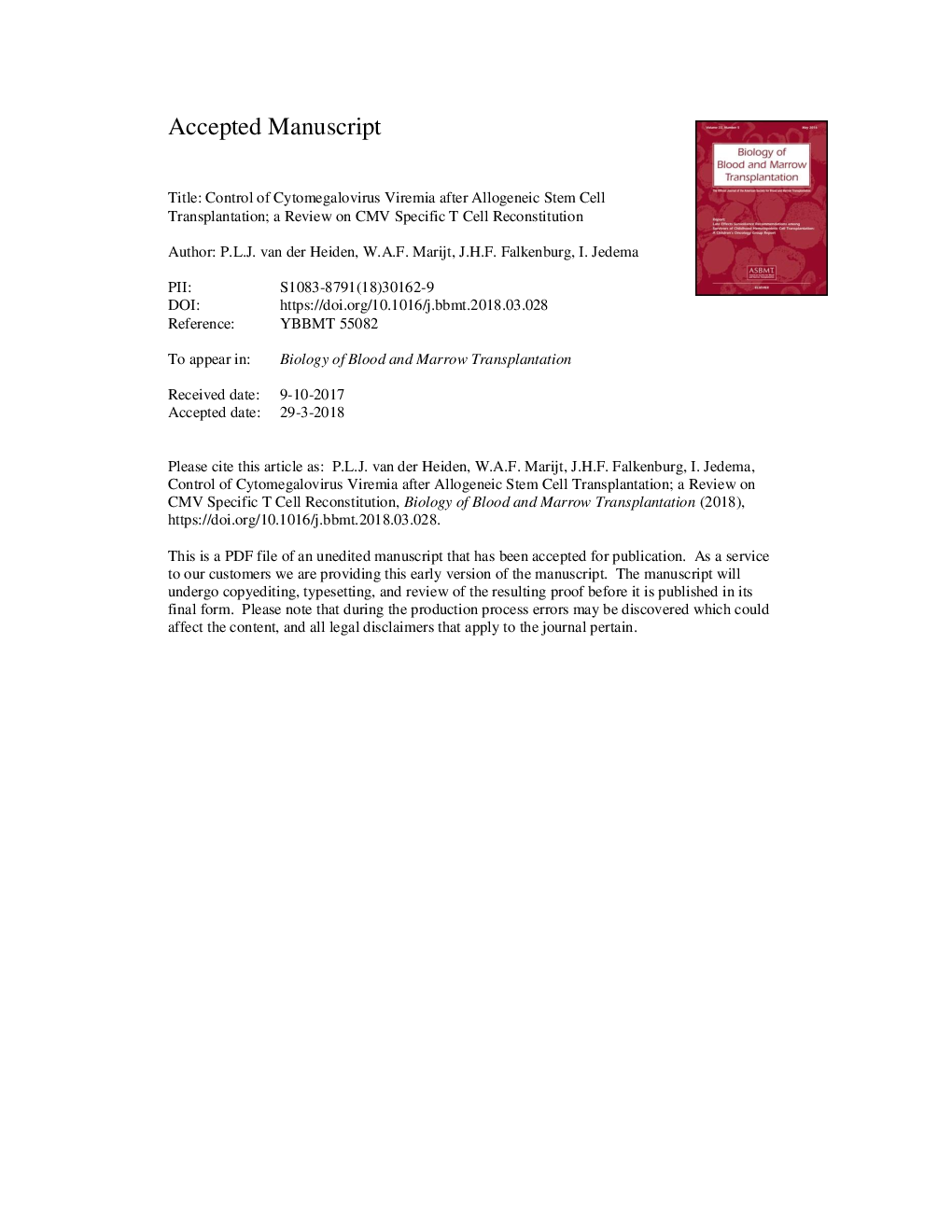| Article ID | Journal | Published Year | Pages | File Type |
|---|---|---|---|---|
| 10157445 | Biology of Blood and Marrow Transplantation | 2018 | 24 Pages |
Abstract
Recipients of allogeneic stem cell transplantation (alloSCT) are at risk for reactivation of endogenous herpesviruses due to profound and prolonged T cell deficiency following conditions such as graft-versus-host disease, immunosuppression, and/or T cell depletion. Reactivation of endogenous cytomegalovirus (CMV) is the most frequently occurring herpesvirus reactivation following alloSCT. Antiviral medication is often used in pre-emptive treatment strategies initiated when increases in CMV viral loads are detected as a result of active reactivation of the virus. Despite pre-emptive antiviral treatment, the incidence of CMV disease in CMV-seropositive alloSCT patients is still 10% at 1 year following alloSCT. This illustrates the necessity for adequate CMV-specific T cell immunity for long-term control of CMV and prevention of CMV disease. In this review, we analyzed the available studies on the influence of donor CMV status on CMV-specific T cell reconstitution and CMV disease. Furthermore, we reviewed the available studies on the safety and efficacy of adoptive transfer of donor CMV-specific T cells for the prevention and treatment of CMV disease following alloSCT, including studies on adoptive transfer of third-party CMV-specific T cells as a possible alternative when donor T cells are not available.
Related Topics
Life Sciences
Biochemistry, Genetics and Molecular Biology
Cancer Research
Authors
Pim van der Heiden, Erik Marijt, Fred Falkenburg, Inge Jedema,
